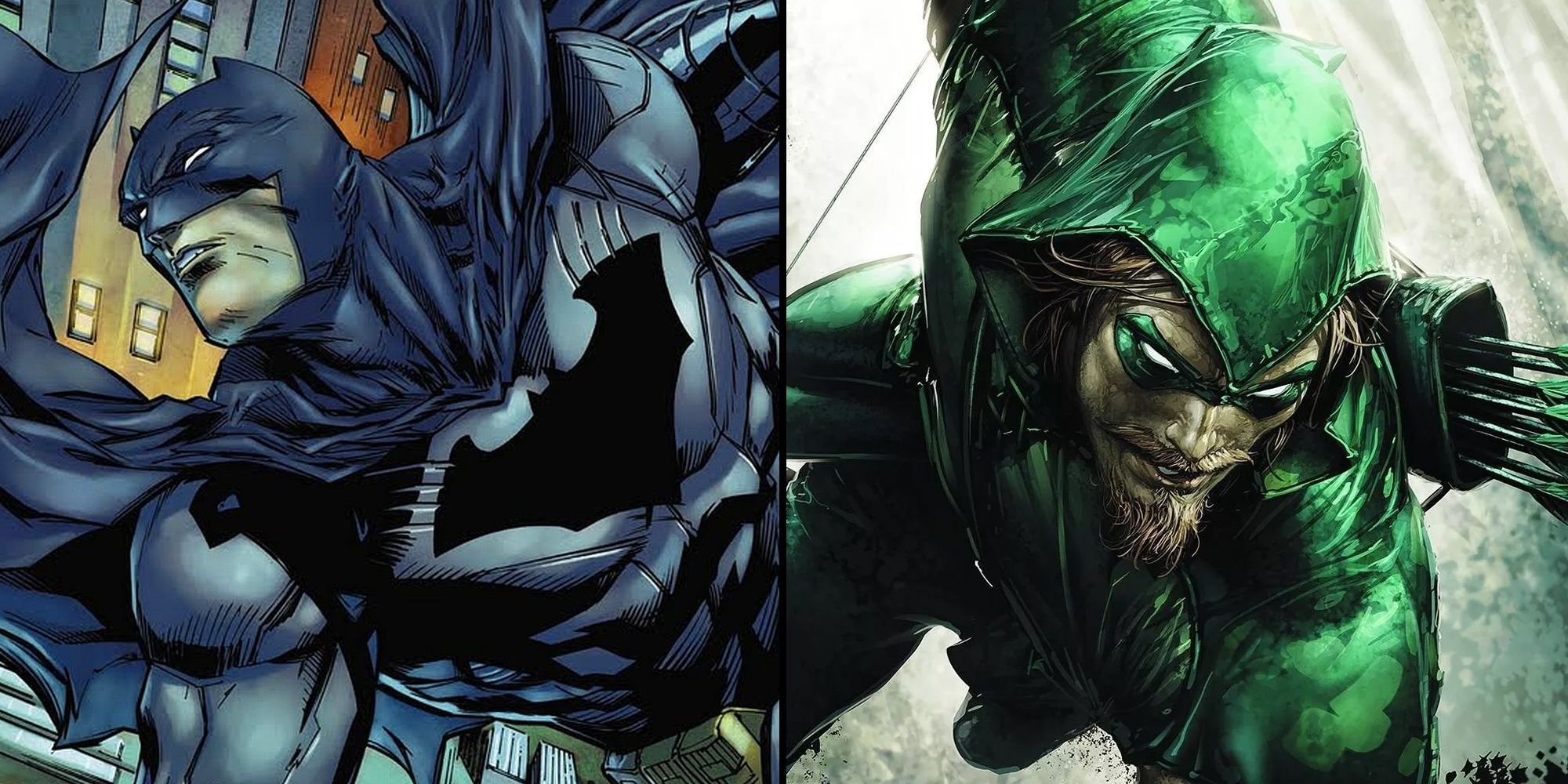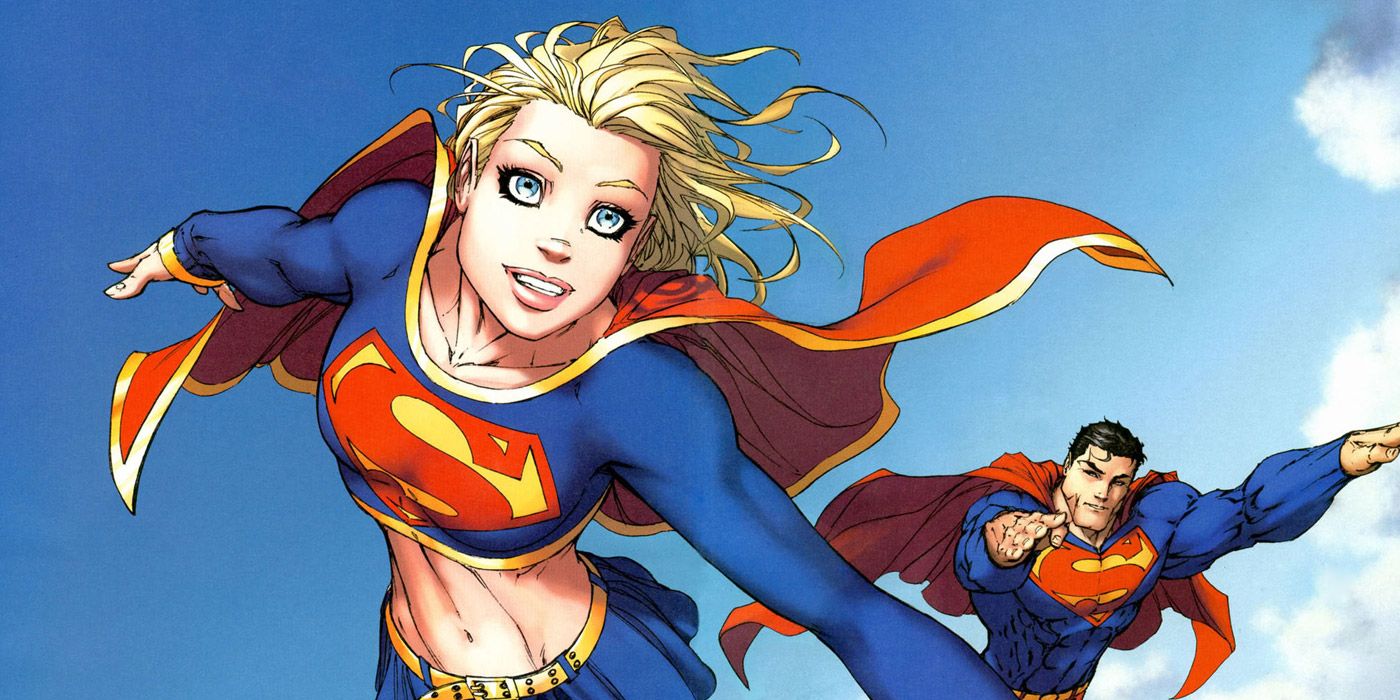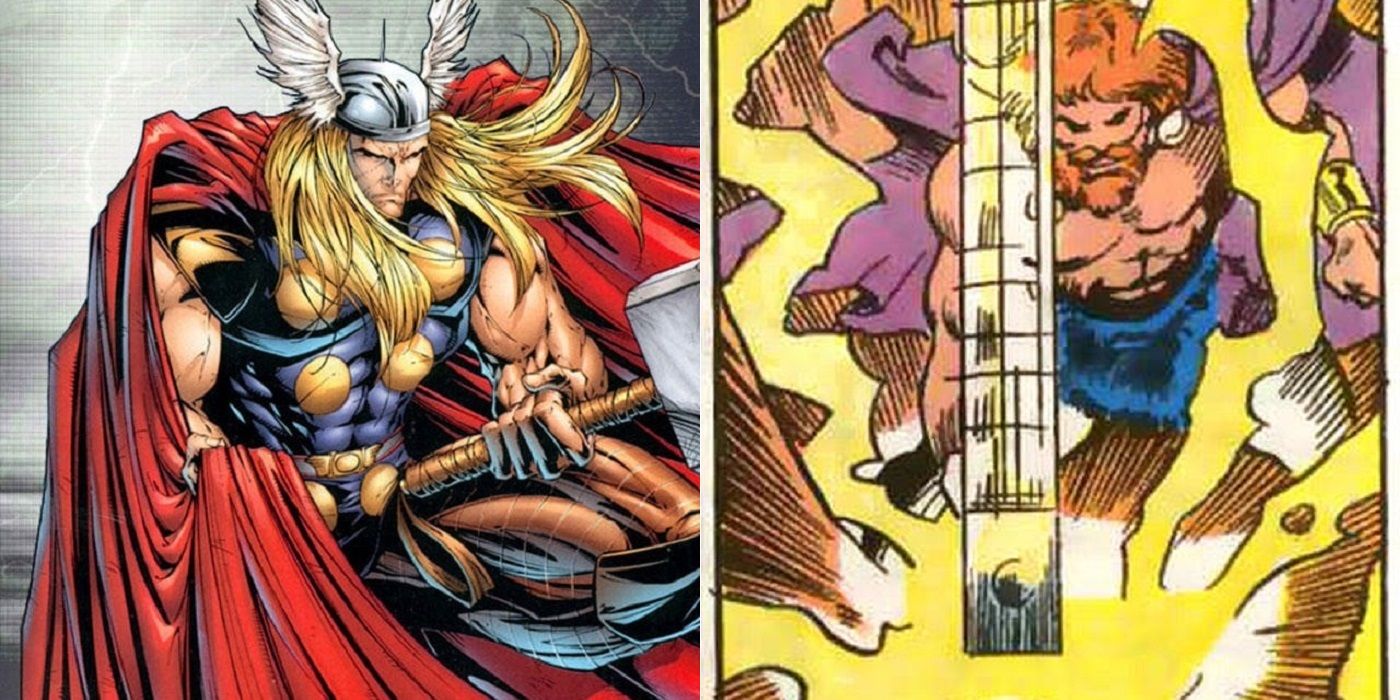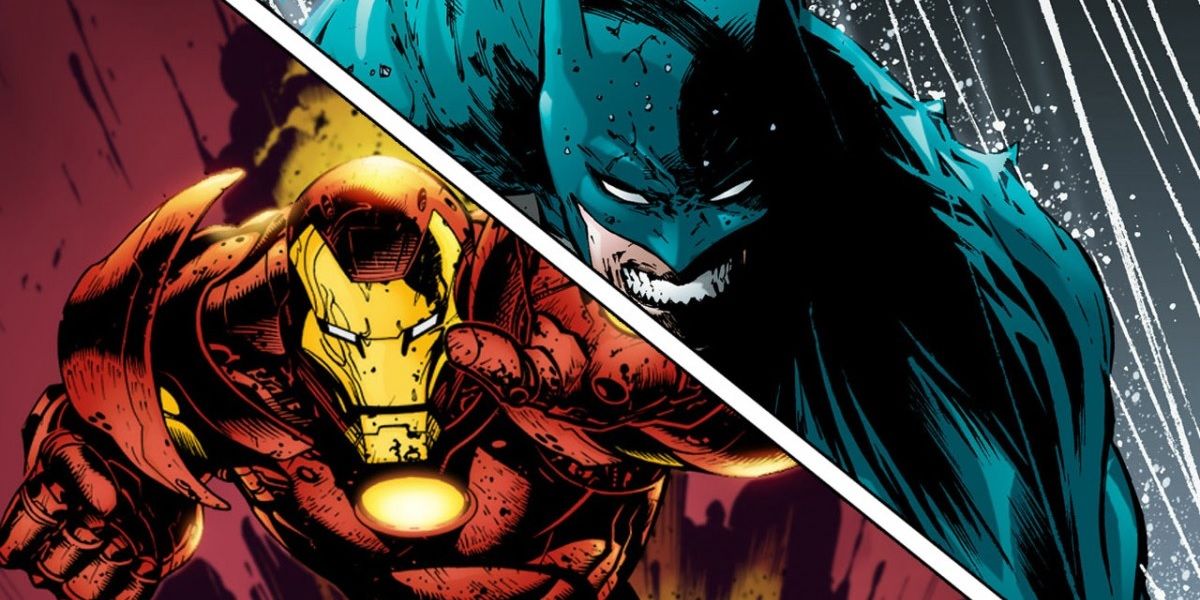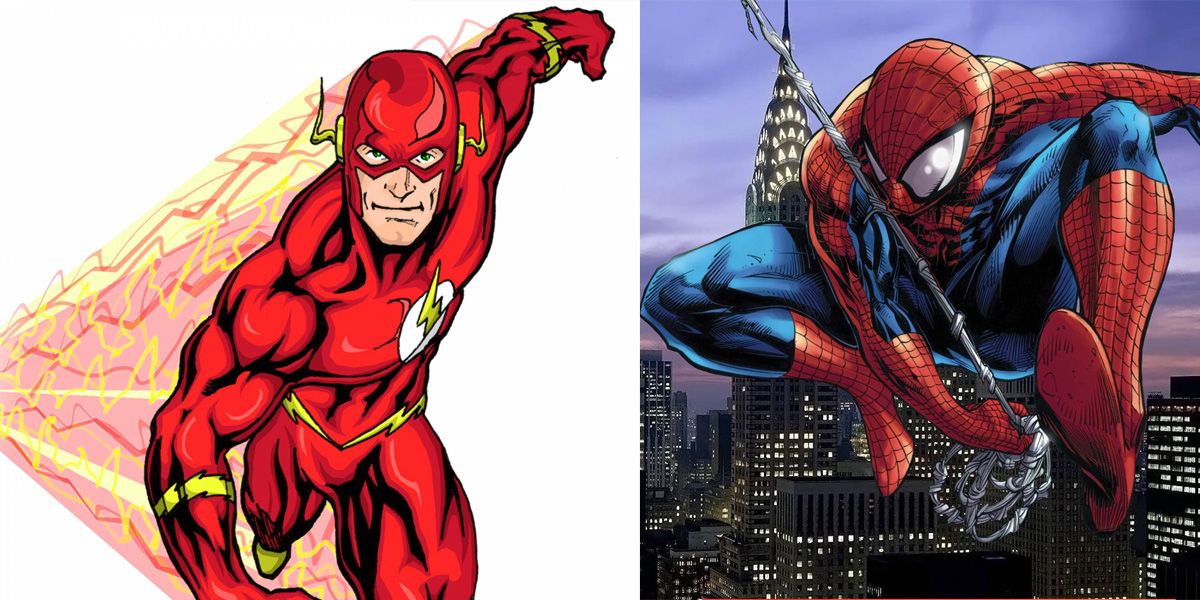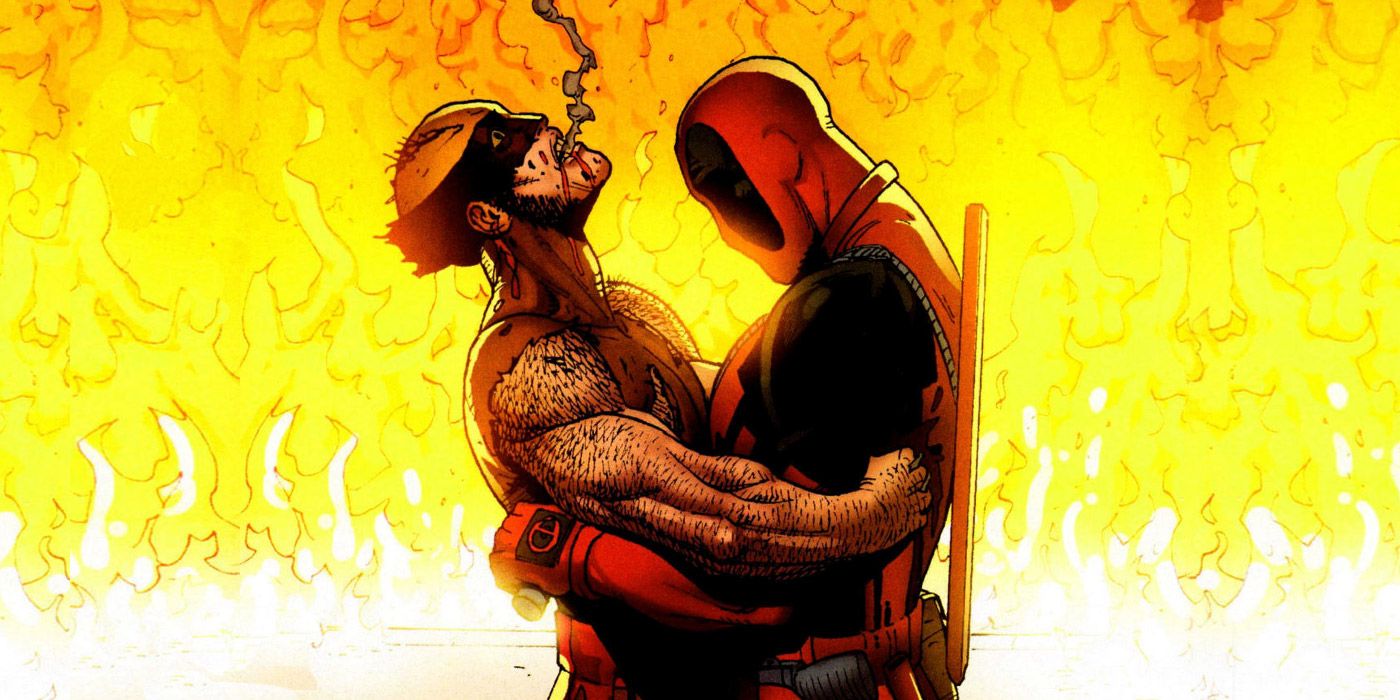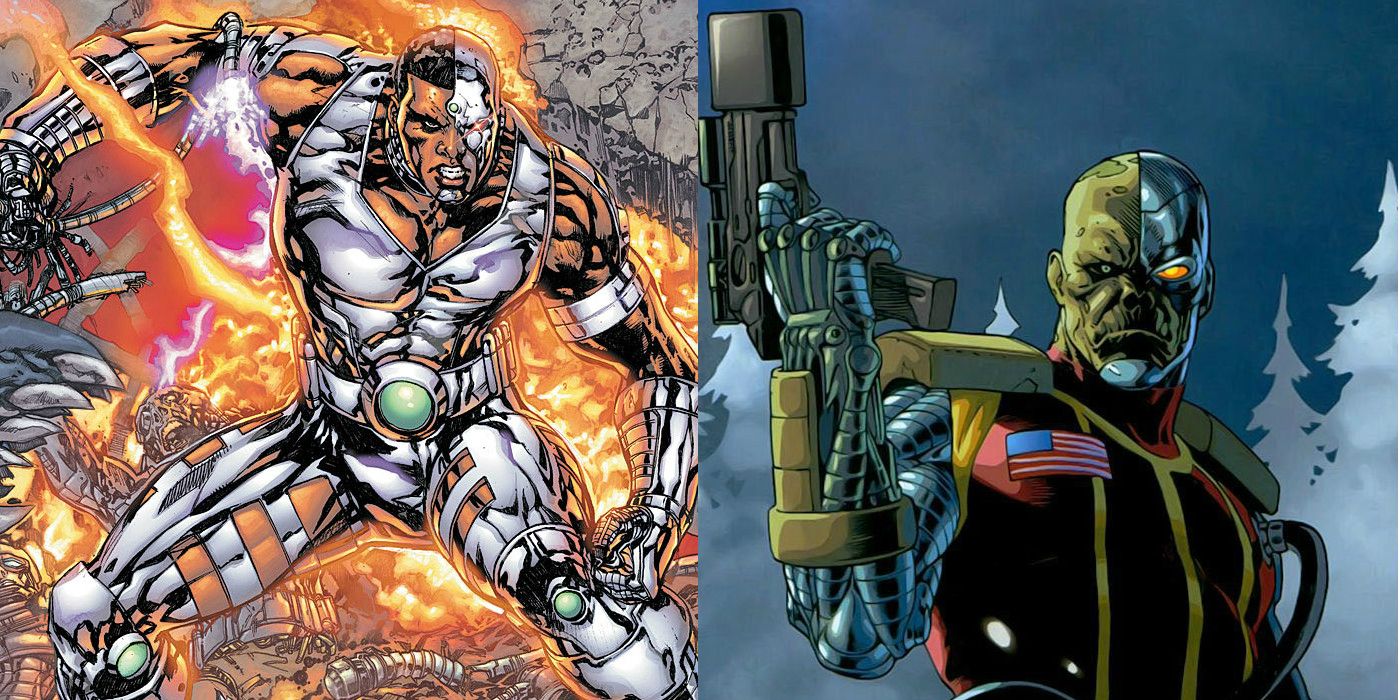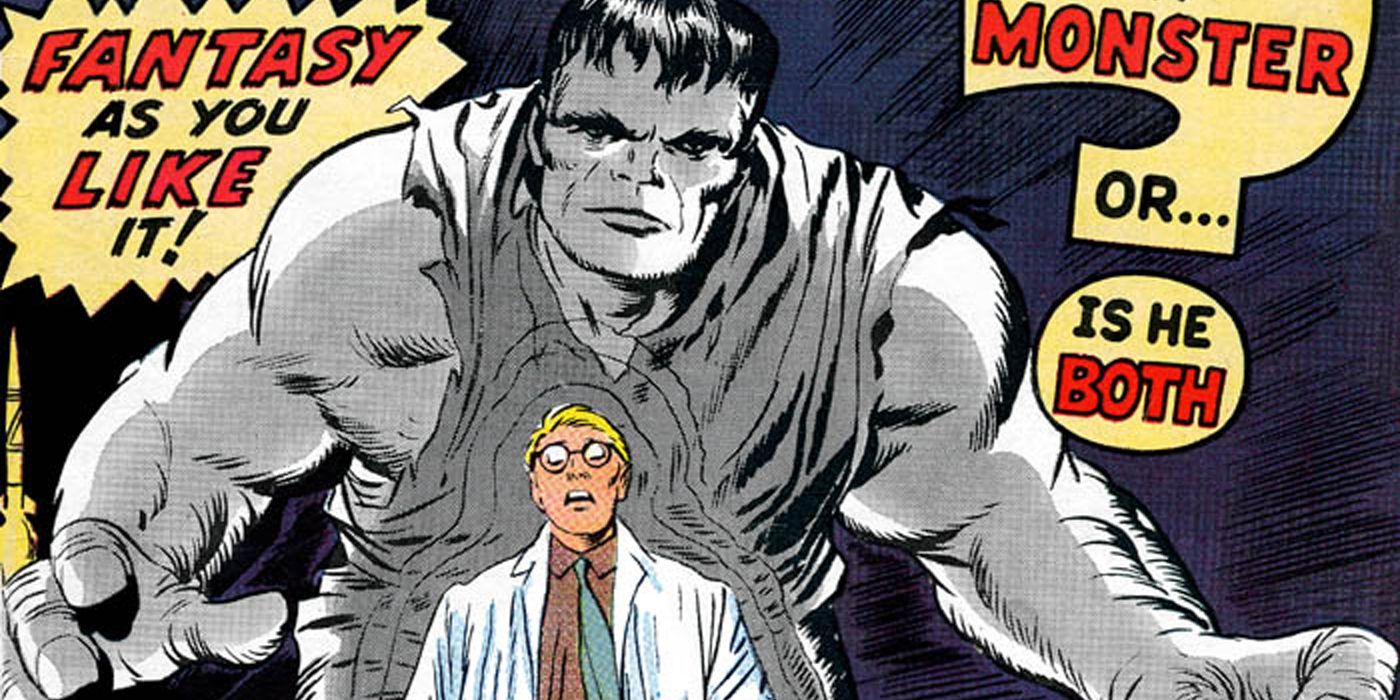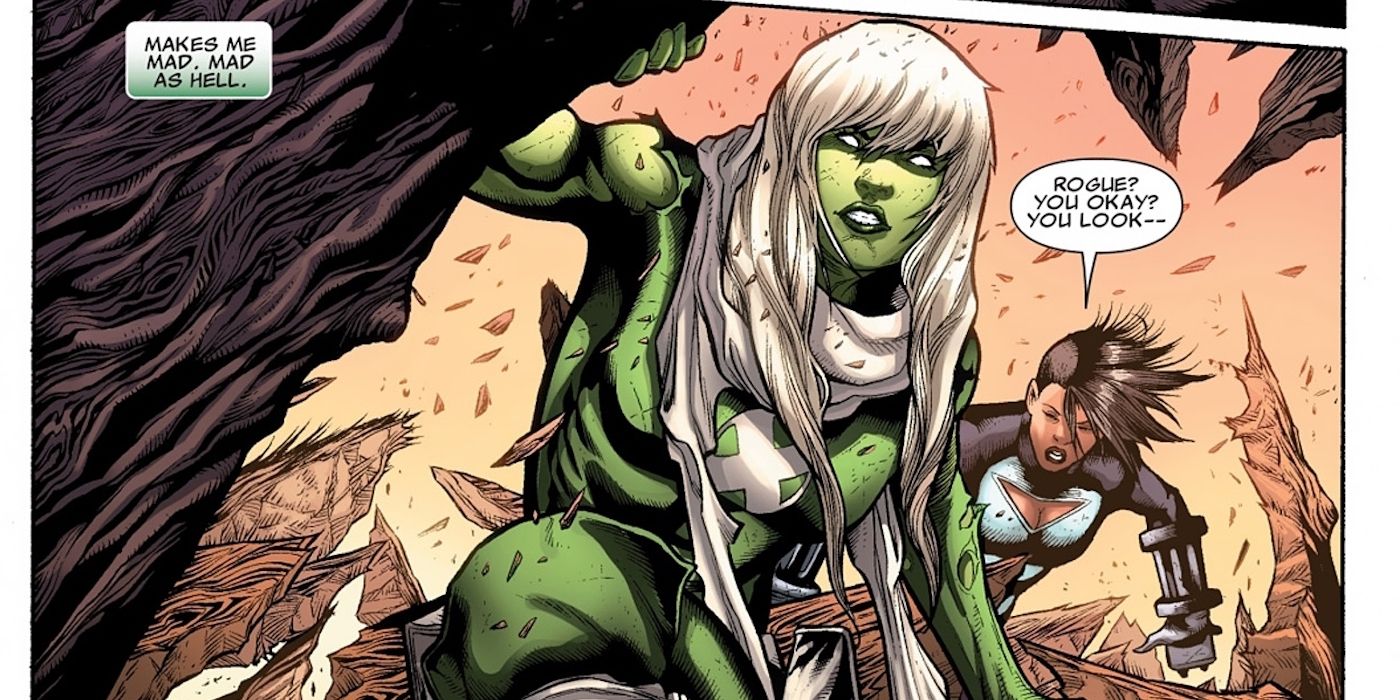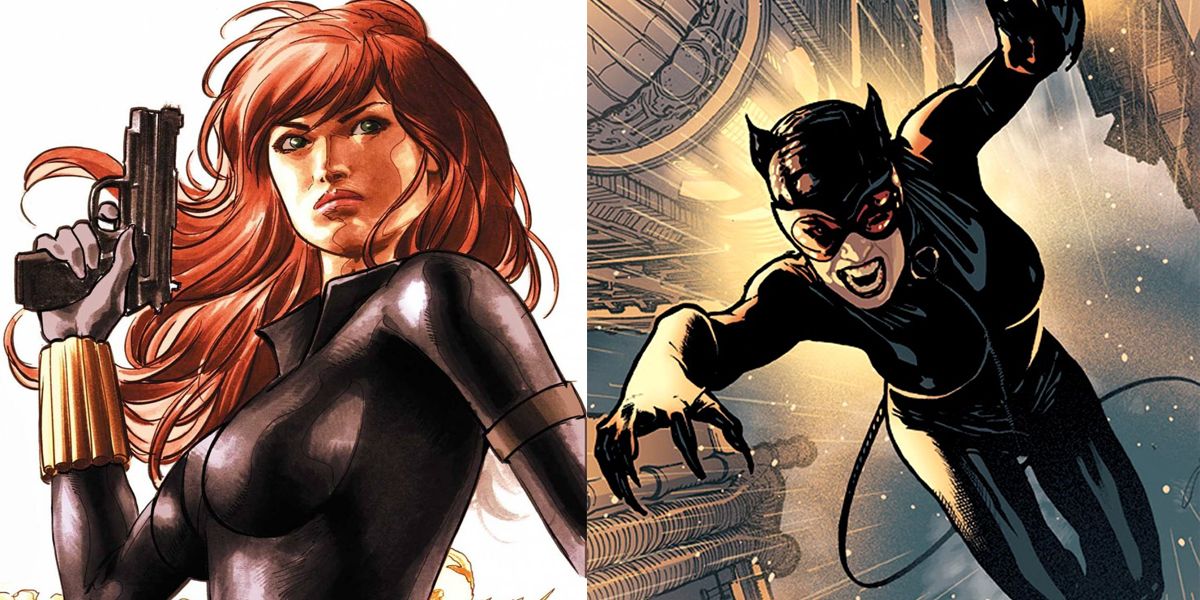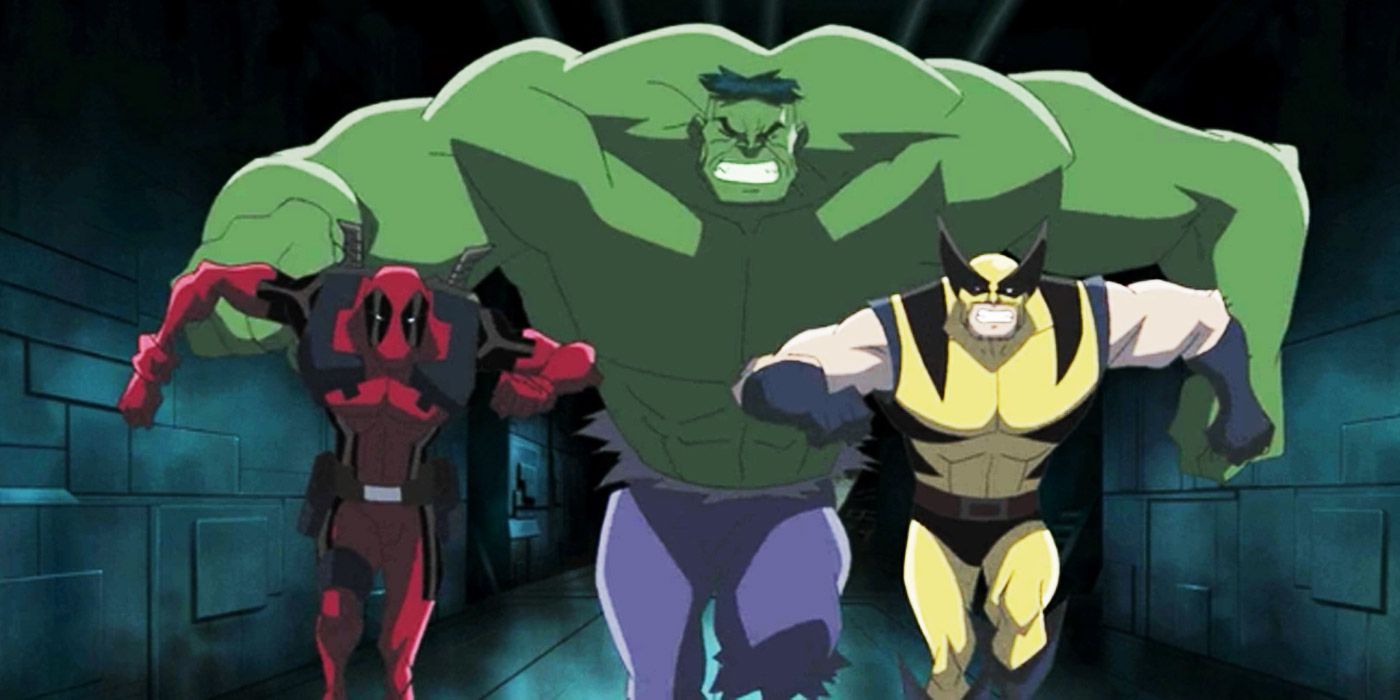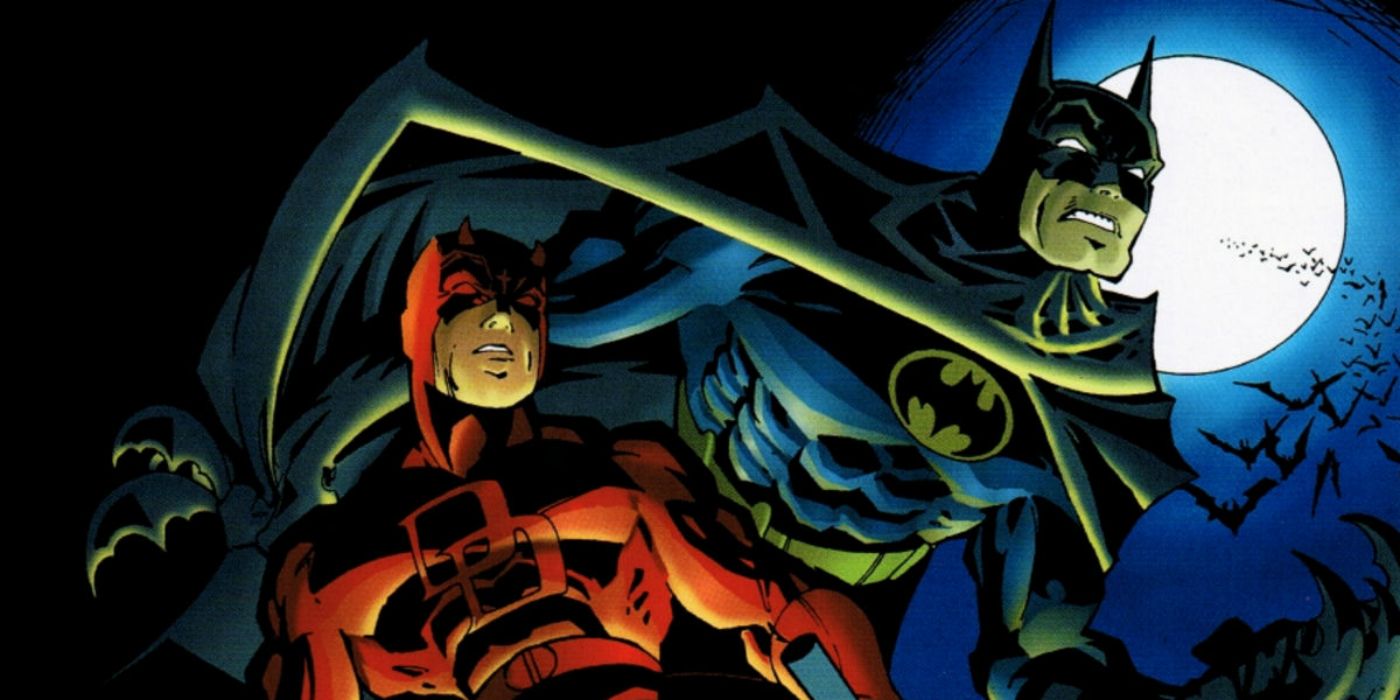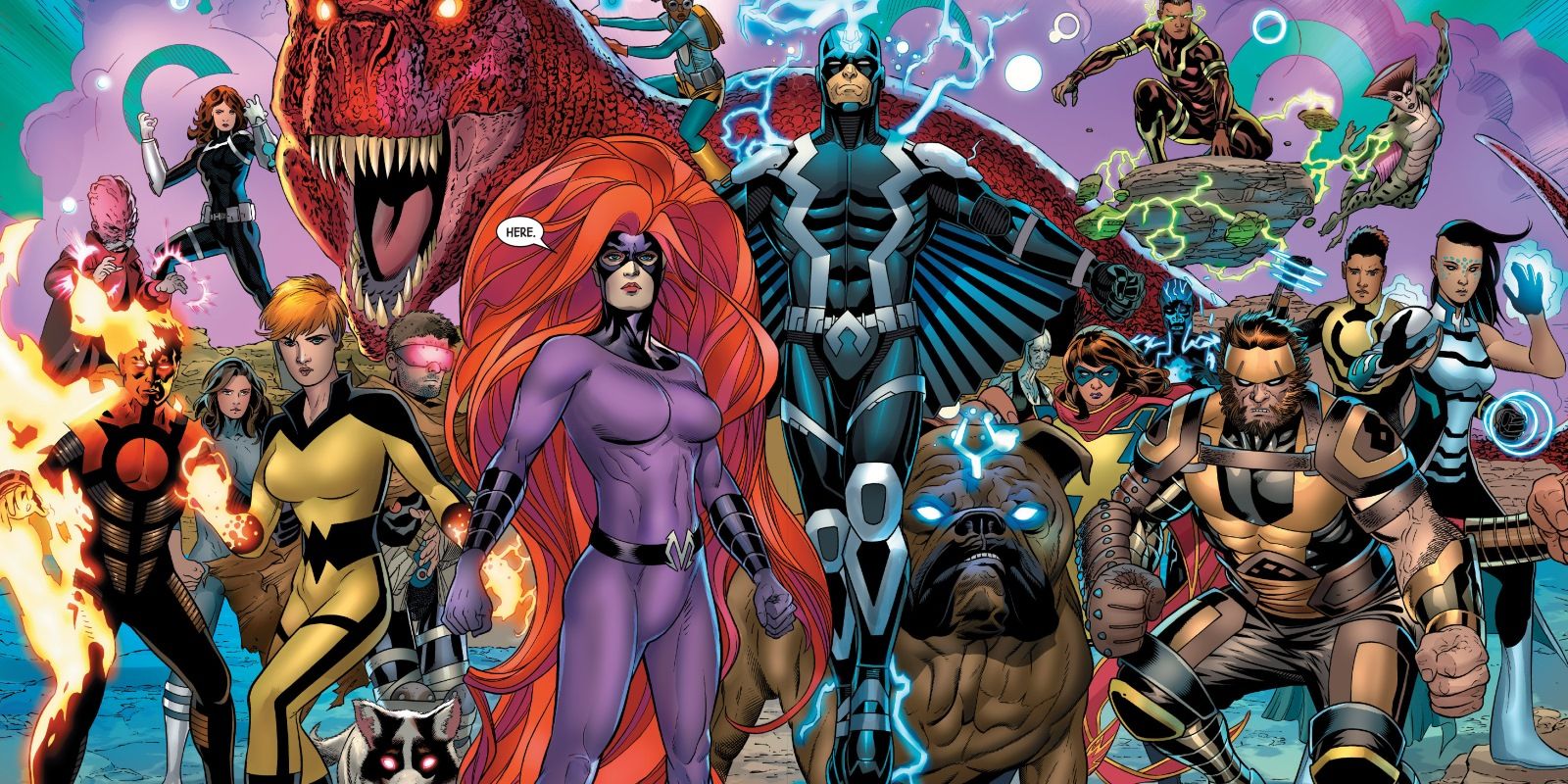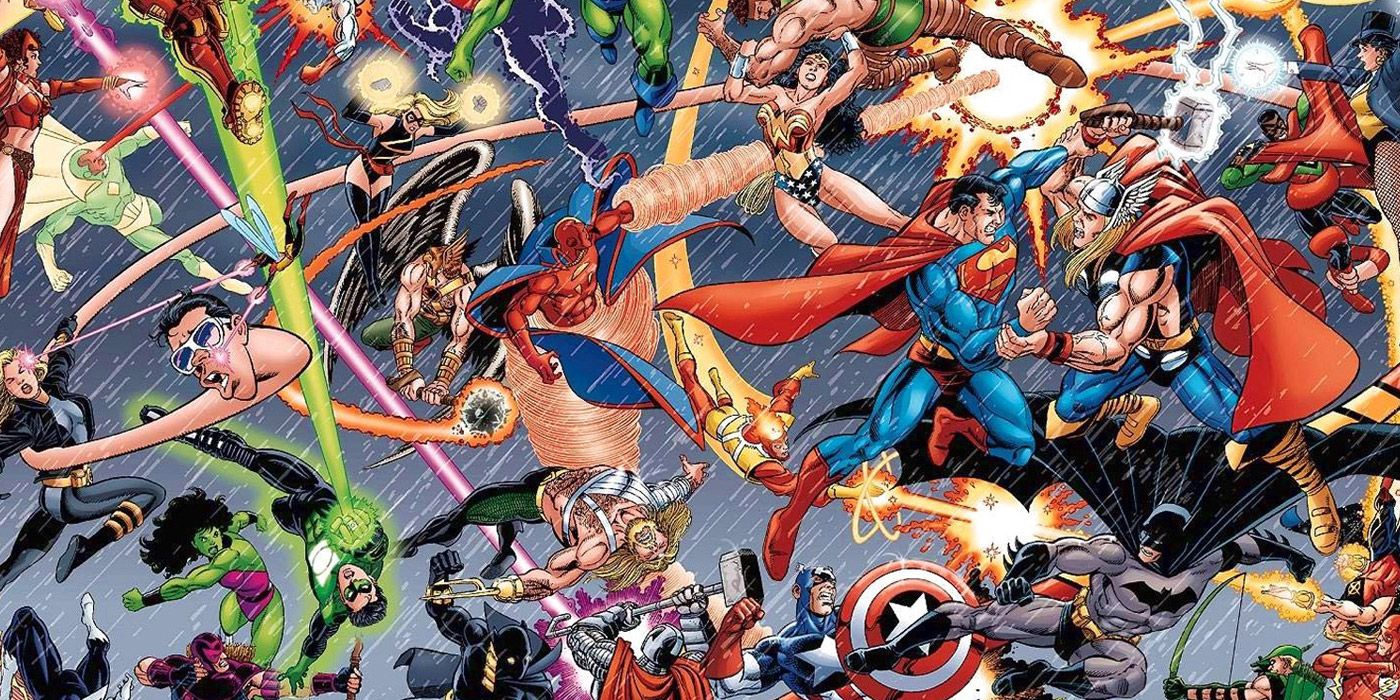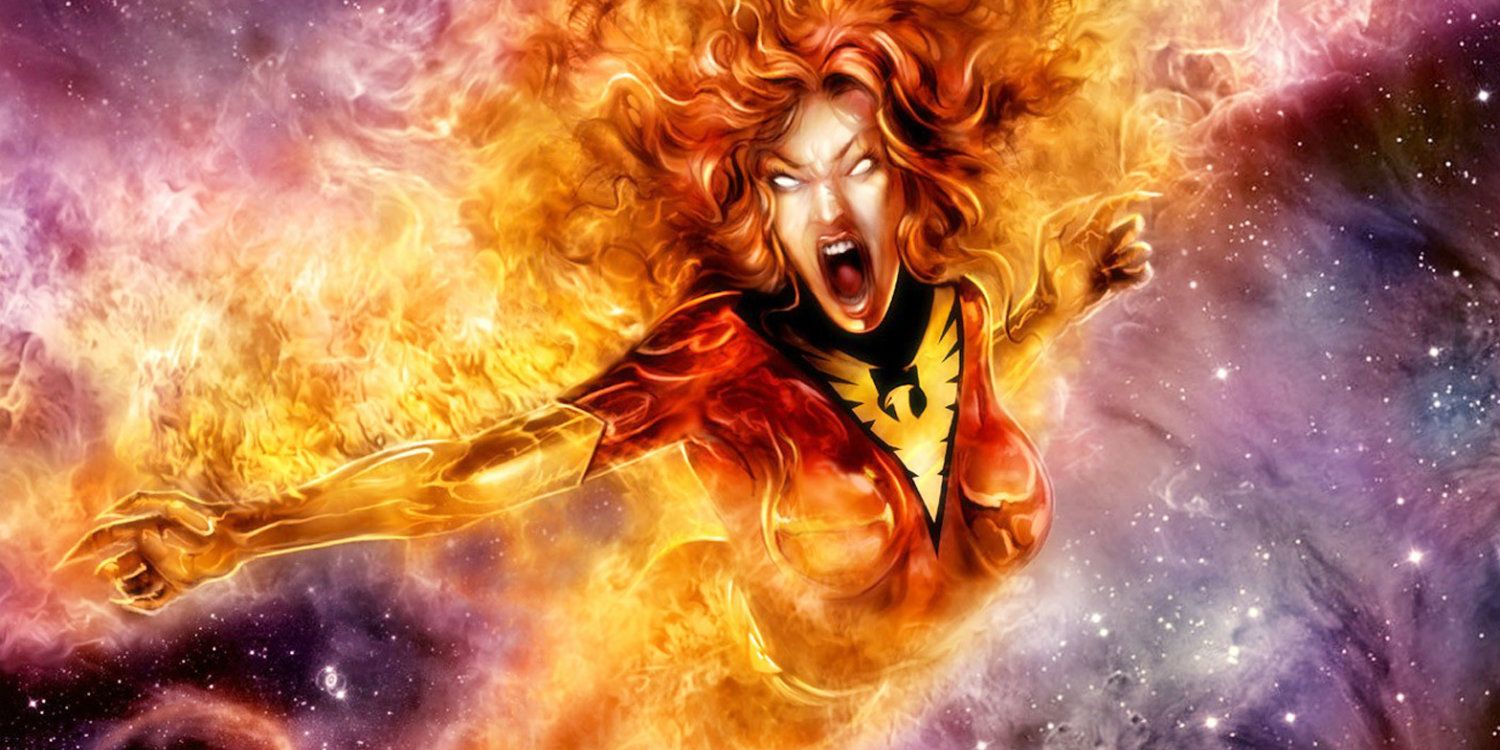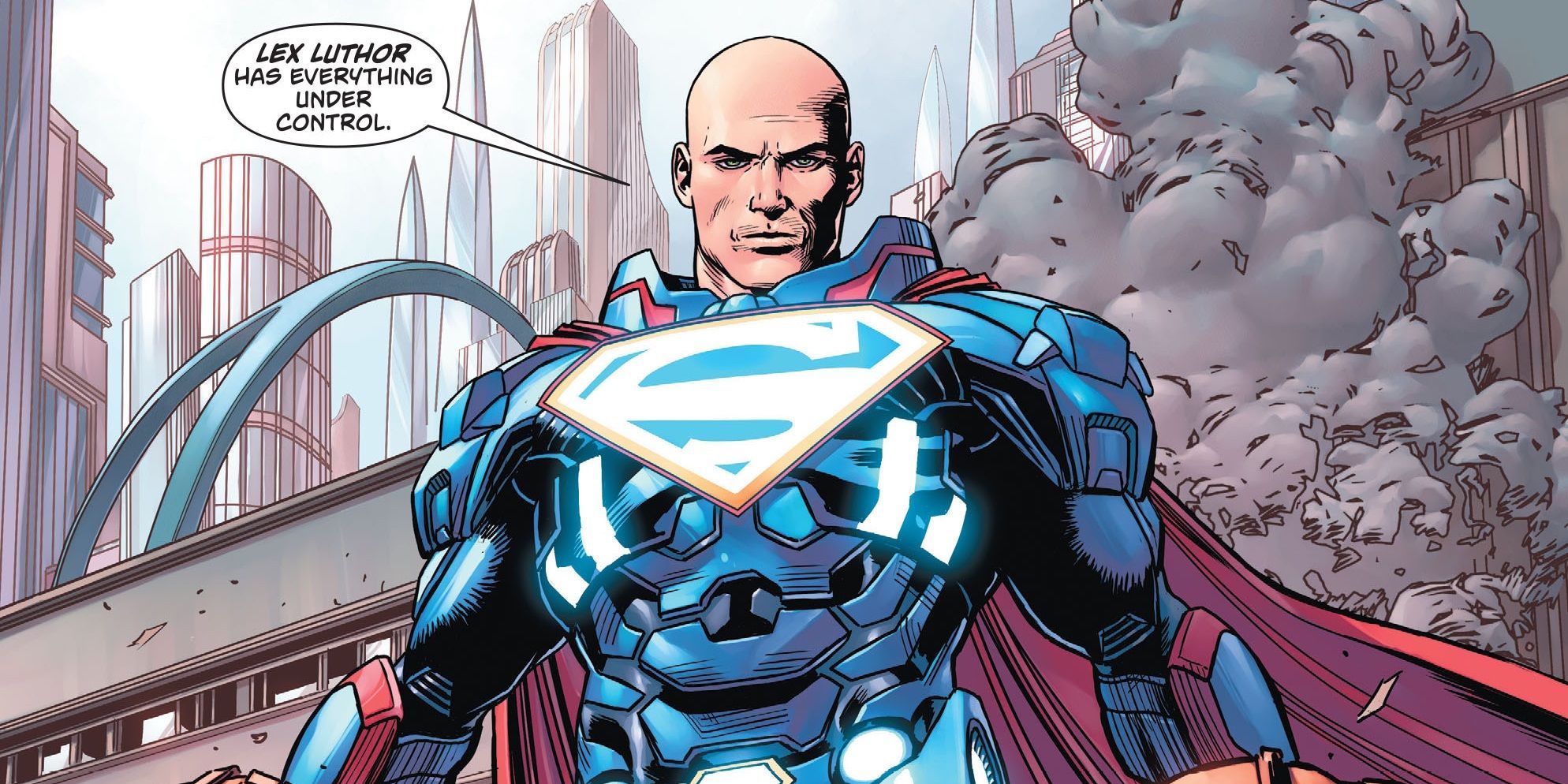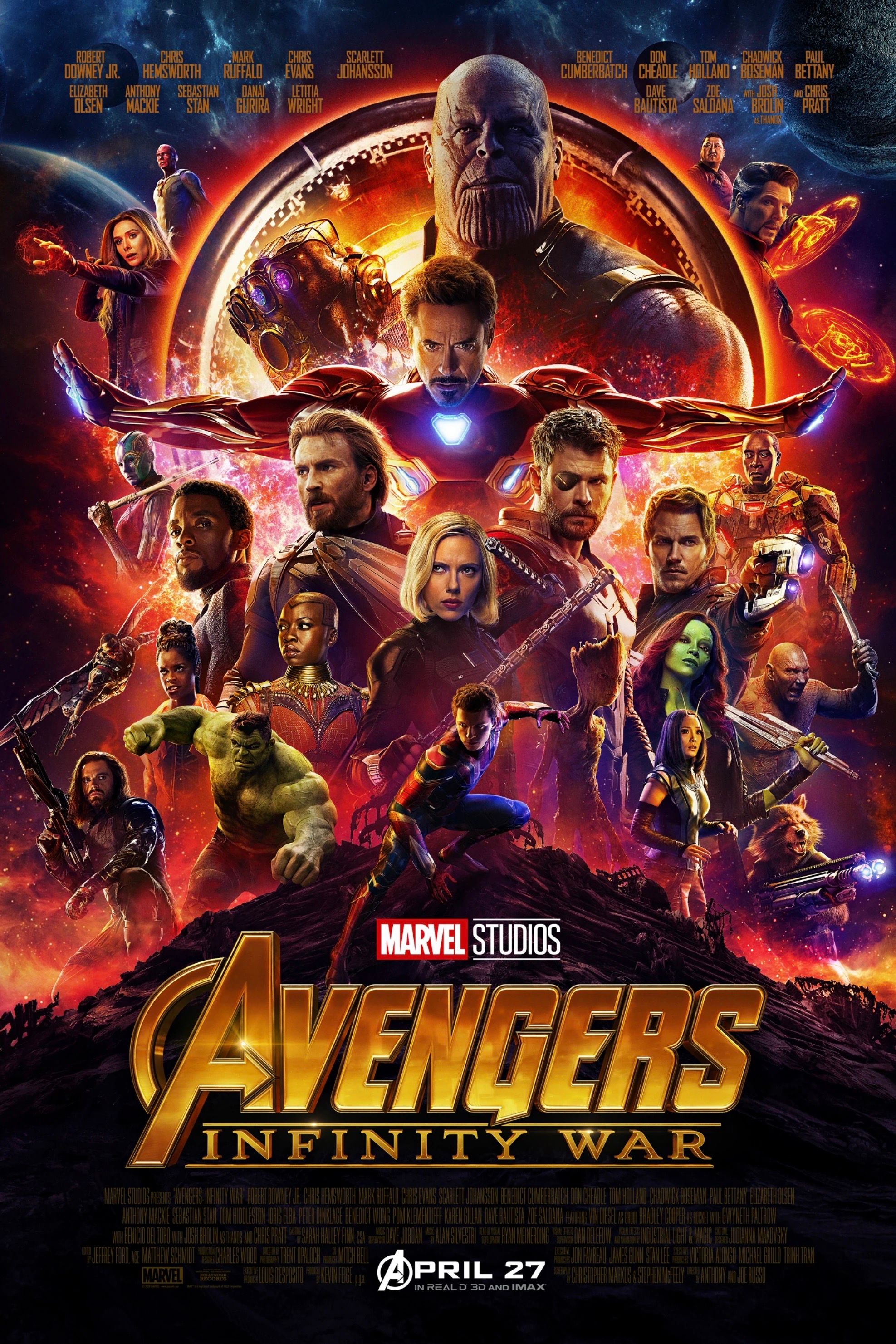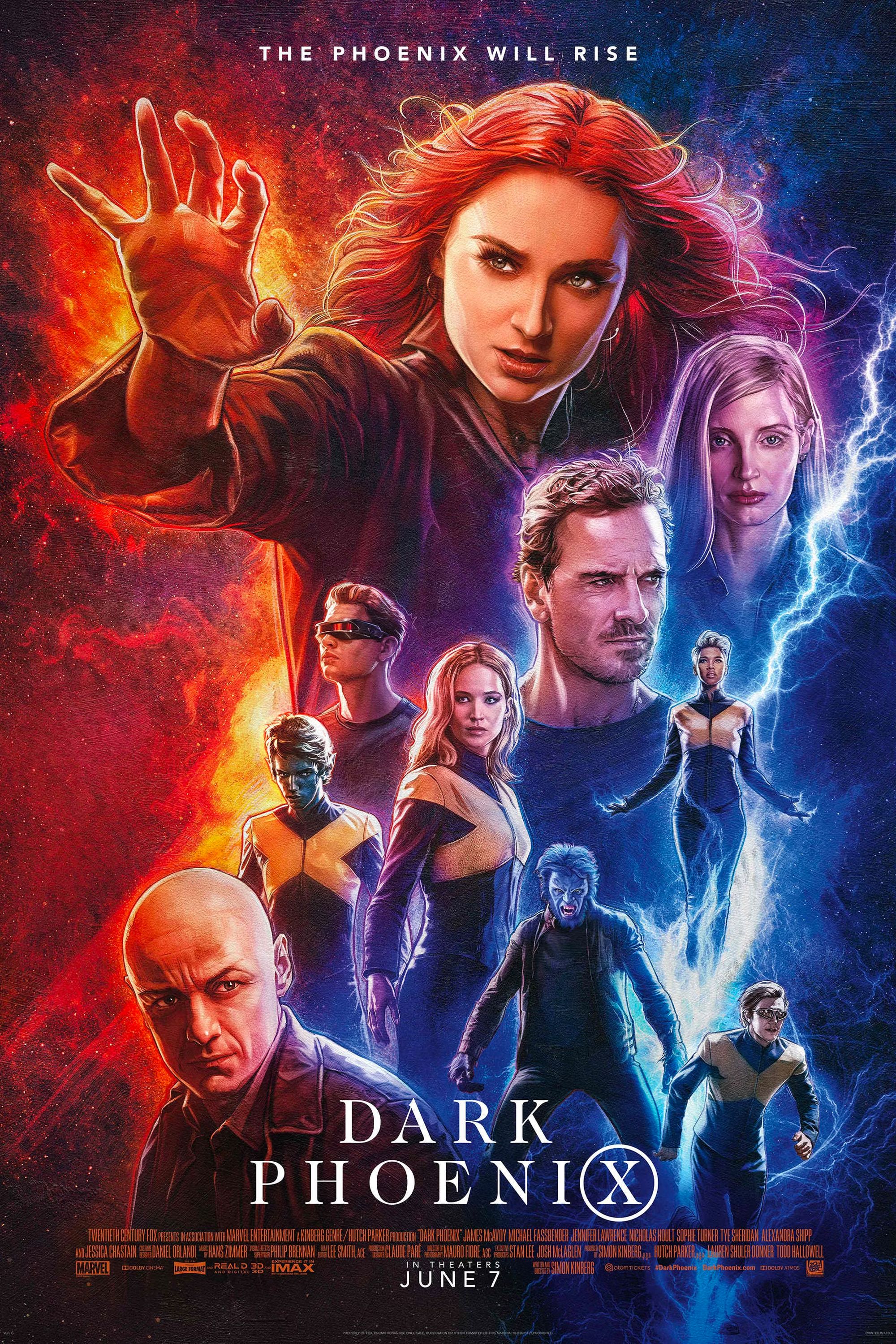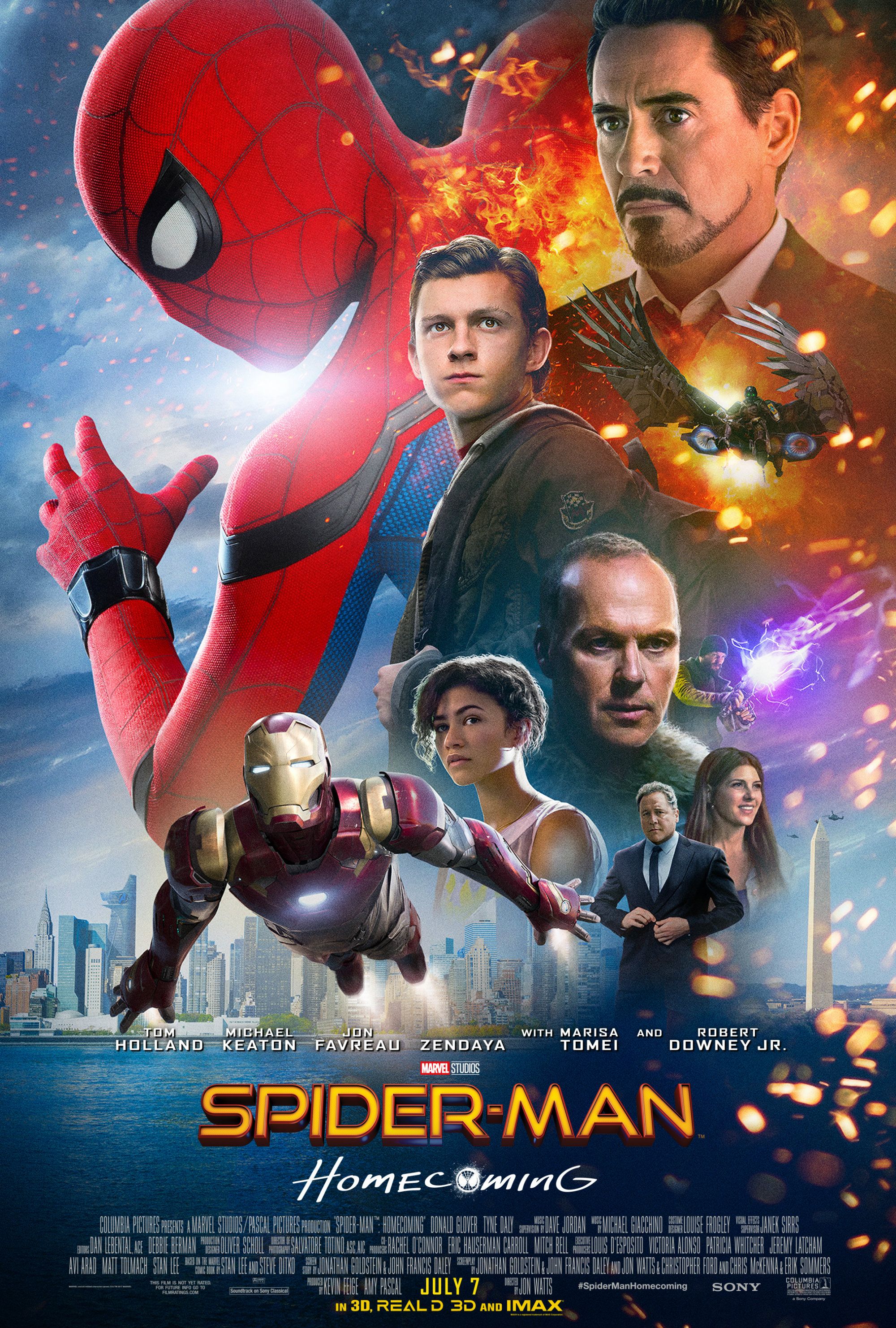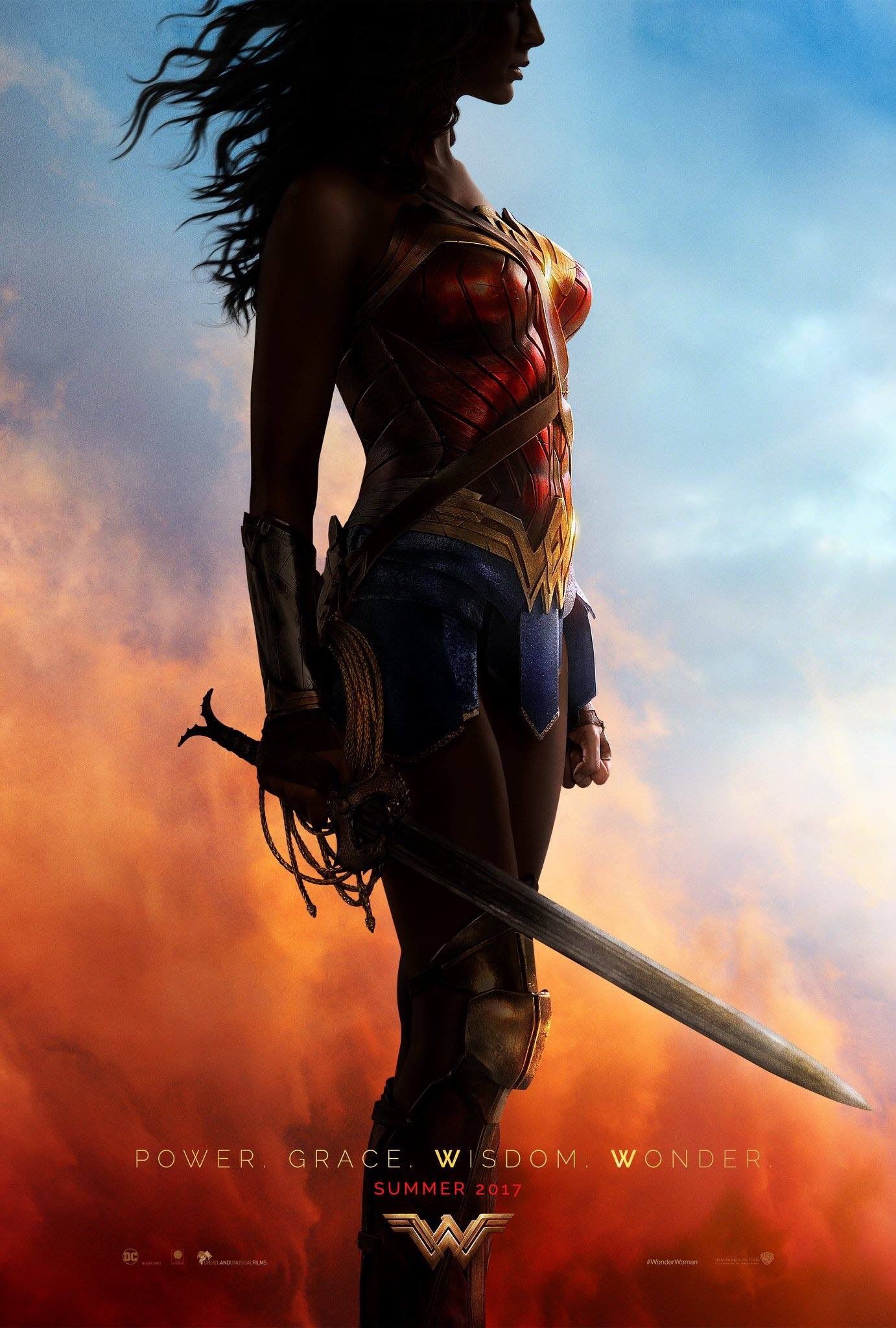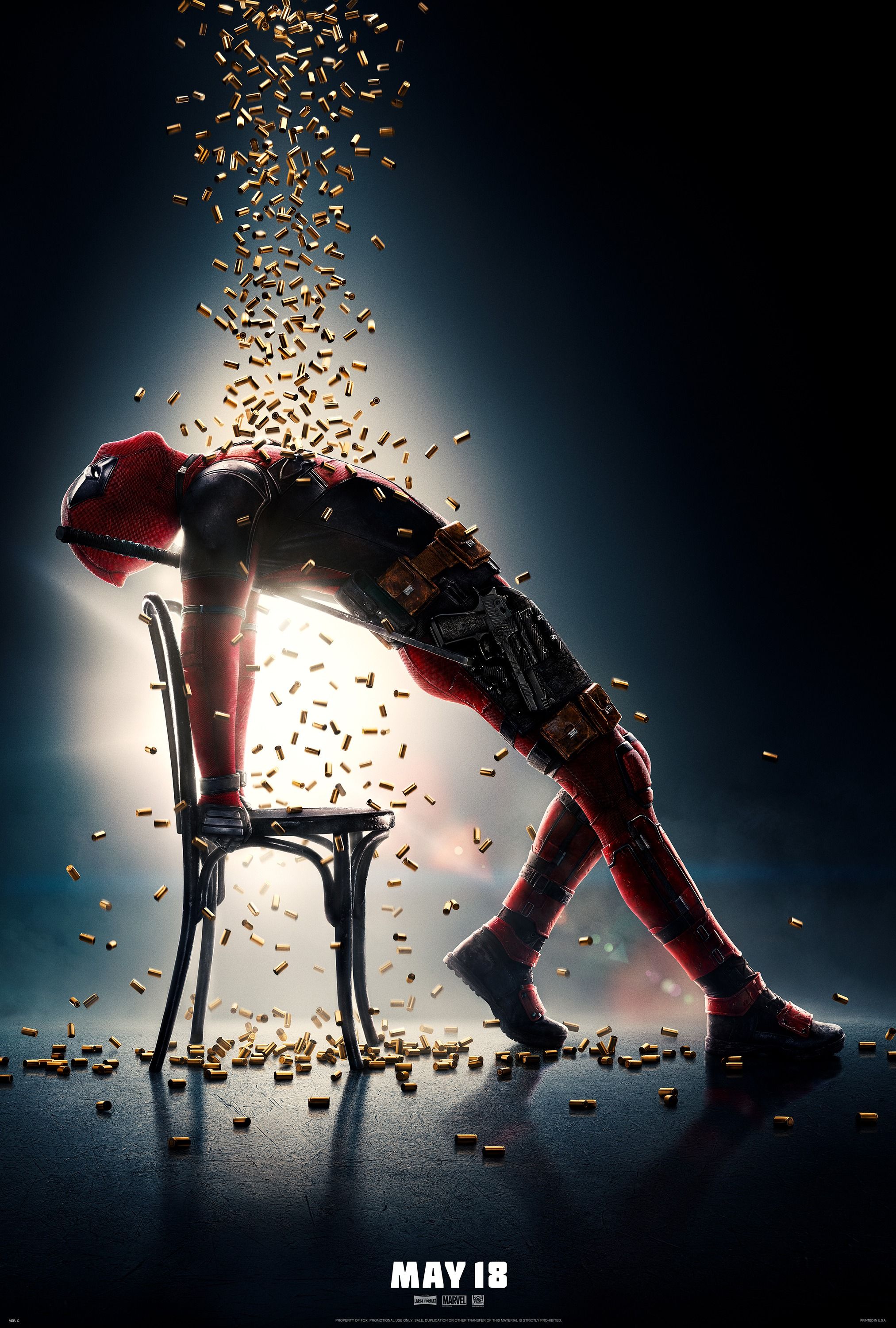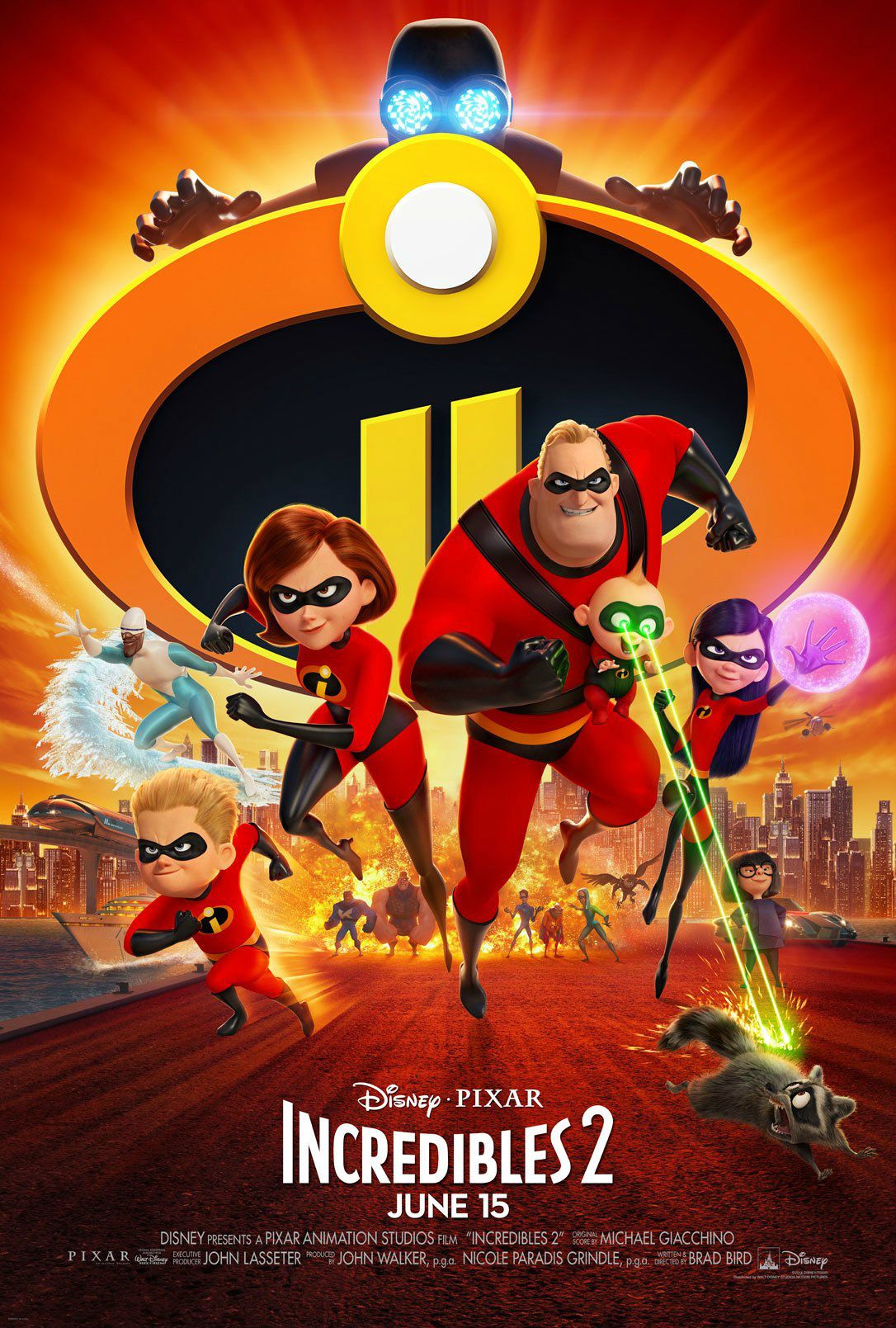Author Christopher Booker wrote in his The Seven Basic Plots that there are really just seven types of stories: overcoming the monster, rags to riches, the quest, voyage and return, comedy, tragedy, and rebirth. A recent study conducted by the University of Vermont and the University of Adelaide, however, narrowed those options down to six: Rise; Fall; Fall then Rise; Rise then Fall; Rise then Fall then Rise; and Fall then Rise then Fall.
When it comes to comic books, it’s safe to say that the majority of the stories are about overcoming monsters, quests, or rebirths. Depending on the comic book era you look at, some stories leaned more toward happy endings, while other phases took a liking to tragic conclusions.
Regardless of the time period and publishing company, there are certainly a few cliche superhero stories that comics and movies love to tell. The coming of an outsider, the curse of superpowers, the temporary switch between good and evil, the teams formed for a greater good... There are certain types of stories we experience over and over again and never seem to get tired of.
These are the 15 Cliche Stories Superhero Comics Won’t Stop Telling.
15. ALIEN COMES TO EARTH
Some of the world’s favorite superheroes and villains come from outer space. Superman and Supergirl are from Krypton, the Silver Surfer is from Zenn-La, Thanos is from Titan, not to mention the Kree superhero known as Mar-Vell, who is the original Captain Marvel. With the news that the Guardians of the Galaxy will be joining “Earth’s Mightiest Heroes” in the upcoming Avengers: Infinity War, whose antagonist will be Thanos, the story of aliens coming to our planet to fix things (or break) things will be repeated once again.
“Alien on Earth” storylines are usually about invasion, dominance, and war. They often follow an identical pattern to “God on Earth” stories (more on those below), but they skew a little more to the sci-fi side of things and get around portraying a powerful savior or monster coming to Earth without delving into any existing religion or ancient mythology.
14. GOD COMES TO EARTH
These types of comic book stories usually reference existing mythologies in our world, but rebrand these previously known gods and goddesses as heroes or villains. Thor and Loki, for instance, were already Norse gods before Marvel, and Hercules was a Greek divine figure before the DC Comics hero. Comic books also enjoy blurring the lines between completely separate mythologies. For example, in Marvel Comics, a Greek god like Ares can cross paths with a Norse god like Thor.
While Wonder Woman is based on a Greek tribe of women warriors called Amazons, DC Comics also made her a demigoddess, and her origin will finally receive a live-action treatment in the upcoming Wonder Woman film.
Recent “God on Earth” stories are usually about a god willingly coming to Earth to complete a particular mission. Unlike “Alien on Earth” storylines, gods aren’t often portrayed as landing in our world by complete accident and without much reason.
13. RICH POWERLESS MAN
There’s nothing super – besides tons of money – about a lot of the most popular heroes in comic book history. Batman, Iron Man, Black Panther, Green Arrow… All very distinctive billionaires with no superpowers.
It comes as no surprise that the “Rich Powerless Man” story is a fan-favorite. While most of these men inherit their fortunes, writers always made a point to counter-balance such luck and not make things too easy for them, attempting to capture the readers’ empathy for these stories. As a kid, Bruce Wayne watches his parents get killed in the streets of Gotham. Tony Stark has to come around the fact that his company’s products are tools for warfare. T’Challa’s mother dies as she gives birth to him, and then his father is murdered. Oliver Queen has to survive being stranded on an island for five years.
Also, whenever these men join teams with heroes that possess superpowers, it’s always interesting to watch them proving themselves as being equally powerful.
12. TEENAGER GAINS POWERS
It’s hard enough to be a teenager, now add superpowers on top of that!
Spider-Man is arguably the most popular example of this cliché story, but certainly not the only one. Barry Allen as Flash and the duo Cloak and Dagger were also just young people when they had to learn how to use their powers on top of learning everything else that there is to know about adulthood.
This type of story is often found in the X-Men, since many mutants' powers only manifest when they hit puberty. The “Teenager Gains Powers” story is about having to face this brand new problem on top of puberty, high school, teenage angst, and first jobs. These heroes don’t often have financial stability or a surplus of parental figures to draw experiences from.
11. PHYSICALLY MODIFIED HERO
With heroes such as Wolverine and Deadpool in such high demand, the long-standing “Physically Modified Hero” trope frmo the comics has been overly explored in recent comic book movies.
These stories are often tragic, and the modifications are almost always brutal. The hero either succumbs to the physical modification as a last resort to solve a problem (and ends up creating new ones) or is forced onto it altogether.
Other examples of physically modified heroes are Rocket Raccoon and the Thing. The first Guardians of the Galaxy movie hints at Rocket's trouble origin story, but the film chooses to not spend much time explaining in detail. The Thing was a victim to the same radiation incident that created the Fantastic Four, but he was the one most physically affected by it.
10. ROBOTICALLY MODIFIED HERO
The “Robotically Modified Hero” is a less explored type of story in recent cinema, but of great importance in the comics. It is, however, poised to make a comeback with Cyborg in the upcoming Justice League movie, and with Cable in the much-anticipated Deadpool 2.
In 1987, robotically modified heroes were in their prime era as RoboCop came out and became an instant hit. However, its 2014 remake failed to capture audiences in the same way. Some other great examples of these types of characters are Superman’s villain Metallo and Marvel’s Deathlok the Demolisher.
Darth Vader is probably the most iconic movie example of this type of story and character. So much so, that the greater audience often forgets that he is really a just piece of robotic carcass keeping a man alive on its inside.
9. SCIENTIST VICTIM OF EXPERIMENT
At one point, it seemed like a good idea for Dr. Bruce Banner to play with gamma radiation, right? And what could’ve gone wrong when Dr. Reed Richards decided to conduct an illegal rocket launch accompanied by three peers?
The Hulk and the Fantastic Four were created accidentally, but ultimately it was their own fault. This is a story that writers are eager to tell but that – for some odd reason! – has failed on several occasions in live-action adaptations.
There was Ang Lee’s 2003 Hulk, which introduced a CG Hulk to the world but didn’t achieve much with its plot. Then came the first MCU iteration of the green hero in 2008’s The Incredible Hulk. Finally, the Marvel Cinematic Universe gave up on its own movie and rebranded the hero with actor Mark Ruffalo for 2012’s The Avengers.
Fantastic Four was released in 2005 and it spun the Rise of the Silver Surfer sequel in 2007. In 2015, the Fantastic Four reboot took place, but failed.
Scientists who are victims of their own experiments. Studios that are victims of their own films. Quite meta, huh?
8. MANAGING OR SHUTTING OFF POWERS
Speaking of the Hulk, there is another great type of story attached to him that has been repeated on several occasions: when a hero has to learn how manage or shut off his or her powers.
It’s really hard for Jean Grey to live without constantly listening to every other person’s thoughts around her. It also sucks for Rogue to be deprived of intimacy; to like someone and be unable to be touched by that person. Like the Hulk, these characters had to learn to manage their powers in order to live normal lives. It’s a very hard journey that shows how being blessed with super abilities can also be daunting, dangerous, and isolating.
These are often characters who prefer being alone in order to protect those around them. At least Jean Grey had Professor Xavier as a mentor, but there was no one to truly empathize with and help the Hulk and Rogue along the way.
7. TRAINED ASSASSIN
The “Trained Assassin” stories are particularly interesting because these are powerless characters who, unlike Tony Stark and Bruce Wayne, did not come from money.
In the case of The Punisher, Black Widow, and Catwoman, all they have is their training. These characters’ backgrounds are often really messed up, involving several damaging experiences that ended up informing their moral compasses.
The latest incarnation of The Punisher, as seen on Netflix’s Daredevil, is sort of a conflicted villain/anti-hero. Black Widow, as portrayed in the MCU films, is an altogether good person, but her troubled past was hinted at during Avengers: Age of Ultron. Catwoman is often portrayed in recent films as merely sexy and sort of menacing, but the comics show her for who she really is: a killer and burglar who in certain comic book iterations dealt with prostitution and a life in the streets.
6. NEARLY INDESTRUCTIBLE HERO
There is yet another dilemma often attached to heroes such as Wolverine, Deadpool, and the Hulk: what is the point of anything if you are nearly indestructible?
As is the case with everything, Deadpool often deals with his indestructibility with good humor and takes full advantage of it, but it is not so easy for others. As seen in Logan, an aged Wolverine is old, tired, and without expectation of death. In his case, death feels almost like a relief. Since the Hulk struggles to manage and/or shut off his powers, he also has a hard time dealing with his indestructibility, as no one can really stop him when things go out of his control.
Another character who also often deals with this kind of problem is Superman, since the only thing that hurts him, kryptonite, is not widely available on Earth.
5. VENGEFUL ORPHAN
The “Vengeful Orphan” is a very common story that doesn’t seem to ever get old. Like almost every single Disney story, a lot of superhero journeys feature orphans as protagonists. But unlike Disney fairytales, these characters often lose their parents to criminals and choose to avenge their families in a way they perceive as valid.
Batman chooses to fight for Gotham because it is Gotham’s crime that killed his parents. The same can be said about Spider-Man’s uncle Ben and New York City, and Daredevil’s father and Hell’s Kitchen. Darth Vader, though a villain, also feels like he is avenging his dead mother when he makes a case for the Empire. Superman also gets to avenge his parents – and his entire planet – in Man of Steel.
4. SUPERHERO FAMILIES
With Marvel’s Inhumans premiering in September of 2017 and The Incredibles 2 coming out summer of 2018, it’s a big moment for superhero families. Not to mention the rumors that the Fantastic Four, Marvel’s First Family, might join the MCU in the near future.
These “Superhero Family” plots are usually about family values or family dramas, about how each relative is made stronger or weaker once he or she operates as a family unit.
The Inhumans stories are definitely family affairs which, once translated onto television, will probably come off as soapy. They are the Royal Family of Attilan, led by Black Bolton, his wife Medusa, his brother Maximus, his sister-in-law Crystal, and his cousins Karnak, Gorgon, and Triton. The Incredibles 2, to no surprise, will once again follow Mr. and Mrs. Incredible, along with their children Violet, Dash, and Jack-Jack.
3. SUPERHERO TEAMS
If not connected by blood, superheroes can also assemble in teams, either with or without a mentor figure. Some of the teams that are headed by a mentor are the X-Men (by Professor Xavier) and the MCU version of The Avengers (by Nick Fury).
In other circumstances, like the MCU Guardians of the Galaxy and the DCEU Justice League and Suicide Squad, the teams are brought together differently. While Batman seems to be doing the recruiting in the upcoming Justice League movie, he doesn’t particularly come off as a mentor figure.
Comic books and Hollywood love superhero teams because they are an opportunity to tell big stories and connect several different franchises into one big spectacle. The results are often so positive that superhero teams are even starting to show up in each other's individual films. Captain America: Civil War, while a Captain America movie, felt like another Avengers. And while Batman v Superman: Dawn of Justice was only meant to be a second installment in the DCEU films, it already felt like a meeting point between several separate characters.
2. HERO TEMPORARILY BECOMES VILLAIN
There has been a lot of controversy surrounding Marvel’s choice to make Captain America a villain in the recent issues of Secret Empire, but temporarily (or indefinitely) turning a hero into a villain is actually a very common trope for comic book stories. It has happened to Jean Grey (as Phoenix), Wolverine, Shazam, Cyclops, and even Superman in previous stories.
In a way, Tony Stark was also seen as the antagonist during the Civil War comic book event and movie, and it was definitely hard to empathize with Bruce Wayne’s nearly villainous hate for Superman in Batman v Superman.
For the most part, the Hulk becomes an incredibly destructive villain every time he is out of control, as seen recently on Avengers: Age of Ultron.
1. VILLAIN BECOMES HERO
Sometimes it’s an actual villain, such as Loki, or a group of villains, like the Suicide Squad, that are talked into doing something good. Other times it’s just a bad guy like Scott Lang being reformed into becoming the Ant-Man, or a group of bad people doing good and assembling as the Guardians of the Galaxy.
There are also perpetual flip-floppers such as Deadpool, Catwoman, and The Punisher, who always act out in their own interests and therefore are villainous or act heroically depending on the context.
These stories are usually about villains who don’t really have any other way out of their misery besides doing an act of good. Whether such transition is temporary, final, or ever-changing, fans love to see villains become heroes, and there are hundreds of these stories out there to prove it.
---
What's your favorite superhero story cliche? Which ones do you hate? Share in the comments!

